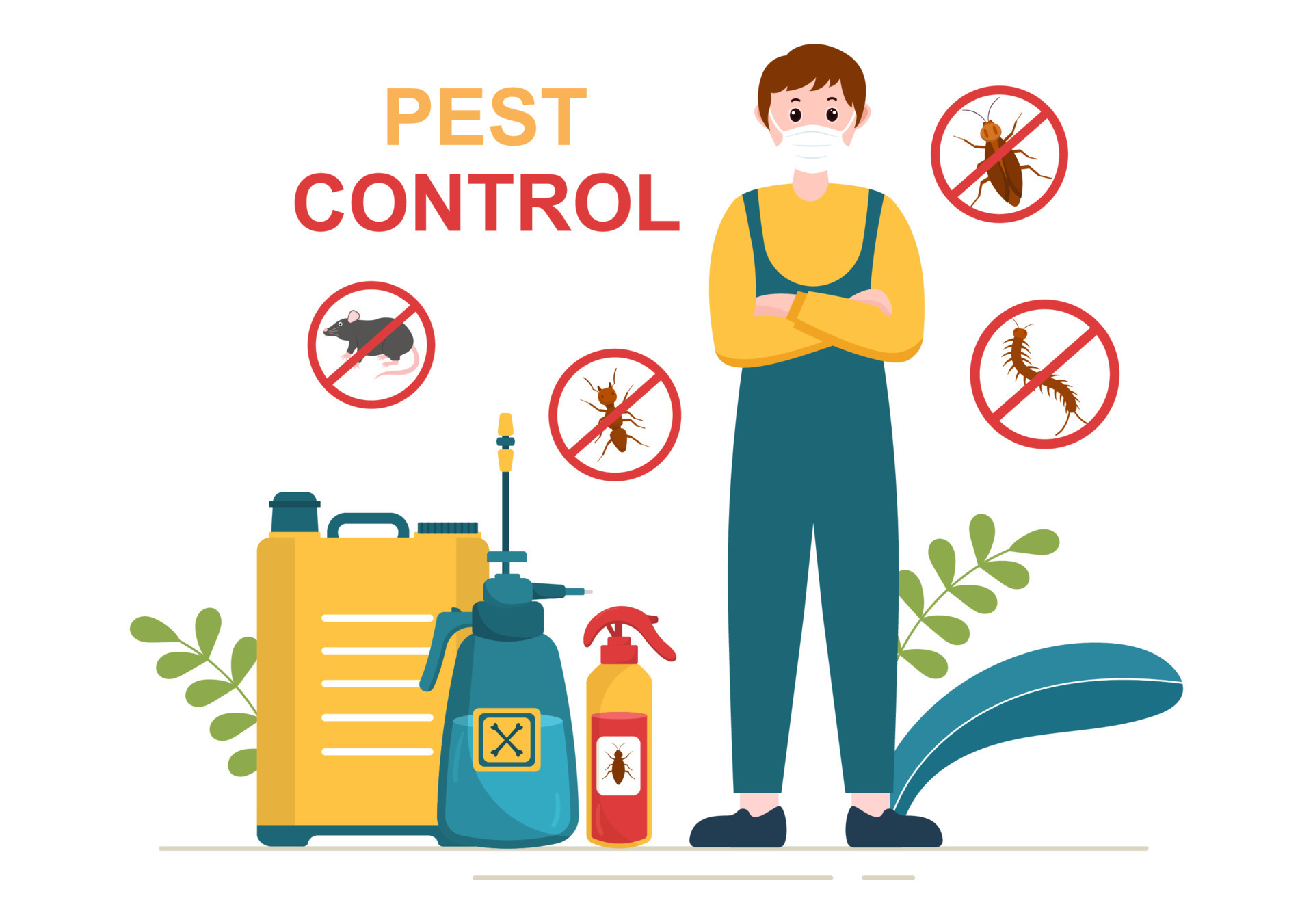Relied on Exterminator Near Me: Your Regional Pest Control Option!
Wiki Article
Professional Pest Control Techniques for Long-Term Outcomes
In the world of pest control, attaining continual efficacy and long-term outcomes needs a precise method that transcends mere extermination. Specialist bug control methods envelop a detailed method that begins with an extensive assessment and evaluation, complied with by exact parasite identification to recognize their behavior patterns. The application of Integrated Insect Management (IPM) principles, paired with eco-conscious treatments, develops the keystone of sustainable bug removal. The real test lies in the recurring monitoring and maintenance of the treated locations, ensuring a pest-free atmosphere for the direct future. By diving into the ins and outs of these strategies, a much deeper understanding of professional pest control approaches for enduring results emerges.Evaluation and Analysis
Upon entering a building for parasite control solutions, the first action is a detailed examination and analysis to recognize the level of the invasion and establish one of the most efficient treatment plan. Professional bug control specialists are trained to thoroughly examine the premises, seeking indicators of insect activity such as droppings, munch marks, nests, or any kind of structural damage. They will certainly likewise evaluate the problems that might be attracting parasites, such as food resources, water leaks, or access points.
Parasite Recognition and Behavior

Additionally, recognizing the actions of the identified insect is essential to carrying out efficient control procedures. Understanding where bugs nest, what they feed on, and their task patterns can help pest control professionals create approaches to remove them effectively. Some parasites might be nighttime, while others are extra energetic throughout the day. This understanding enables the application of therapies at optimum times for optimum efficiency.
Integrated Parasite Administration (IPM)
Integrated Pest Monitoring (IPM) techniques incorporate several techniques to manage and prevent parasite invasions in a lasting and eco pleasant manner. pest control near me. By integrating techniques such as organic control, habitat adjustment, adjustment of social practices, and making use of immune varieties, IPM aims to decrease the use of chemical pesticidesOne of the crucial concepts of IPM is the emphasis on avoidance. This aggressive technique includes surveillance pest populaces on a regular basis to identify any kind of potential concerns before they rise. By determining insect issues early on, pest control actions can be carried out quickly and successfully.
Additionally, IPM advertises using safe parasite control methods whenever possible. This can include employing natural flying ants predators of the insects, introducing valuable insects, or using pheromones to interfere with mating patterns. By decreasing reliance on chemical pesticides, IPM not only protects the environment but also helps maintain an equilibrium in the ecosystem.
Environmentally-Friendly Therapies
Executing eco-conscious techniques in pest control procedures can effectively address problems while focusing on environmental sustainability. Environmentally-friendly therapies concentrate on minimizing the influence of bug control techniques on ecosystems, non-target microorganisms, and human wellness.One more secret aspect of environmentally-friendly therapies is using natural and naturally degradable products that damage down promptly without leaving unsafe deposits in the atmosphere. Herb insecticides acquired from plants like chrysanthemums or neem find out use efficient pest control while presenting minimal threat to non-target types. Additionally, employing approaches like heat treatments or pheromone catches can target specific insects with accuracy, minimizing the total environmental effect of parasite control practices.
Continuous Tracking and Upkeep
Consistent surveillance and upkeep are vital components of effective insect control management. Recurring tracking plays a vital role in making certain that insect invasions are detected very early and taken care of promptly. Normal inspections by experienced professionals are essential to determine any kind of indicators of bug task, examine the efficiency of previous therapies, and make modifications to the insect control plan as needed. By keeping track of bug populations in time, insect control experts can track trends, prepare for possible problems, and carry out safety nets to minimize the risk of future problems.
Along with tracking, maintenance methods are important for long-term parasite control success. This includes carrying out correct hygiene procedures to eliminate prospective food and water sources for insects, securing off entry factors to stop pests from getting in the facilities, and attending to any type of structural concerns that might assist in insect problems (exterminator near me). By incorporating ongoing tracking and upkeep right into an integrated pest management technique, businesses can ensure a pest-free atmosphere and secure their residential or commercial property against pricey damage and health threats
Verdict
In conclusion, using specialist parasite control methods such as complete assessment and analysis, precise pest identification and understanding of their actions, integrated parasite management strategies, environmentally-friendly therapies, and go continuous surveillance and maintenance are necessary for accomplishing lasting lead to parasite control. By executing these techniques, people can effectively manage insect invasions and maintain a pest-free environment in a sustainable fashion.Report this wiki page